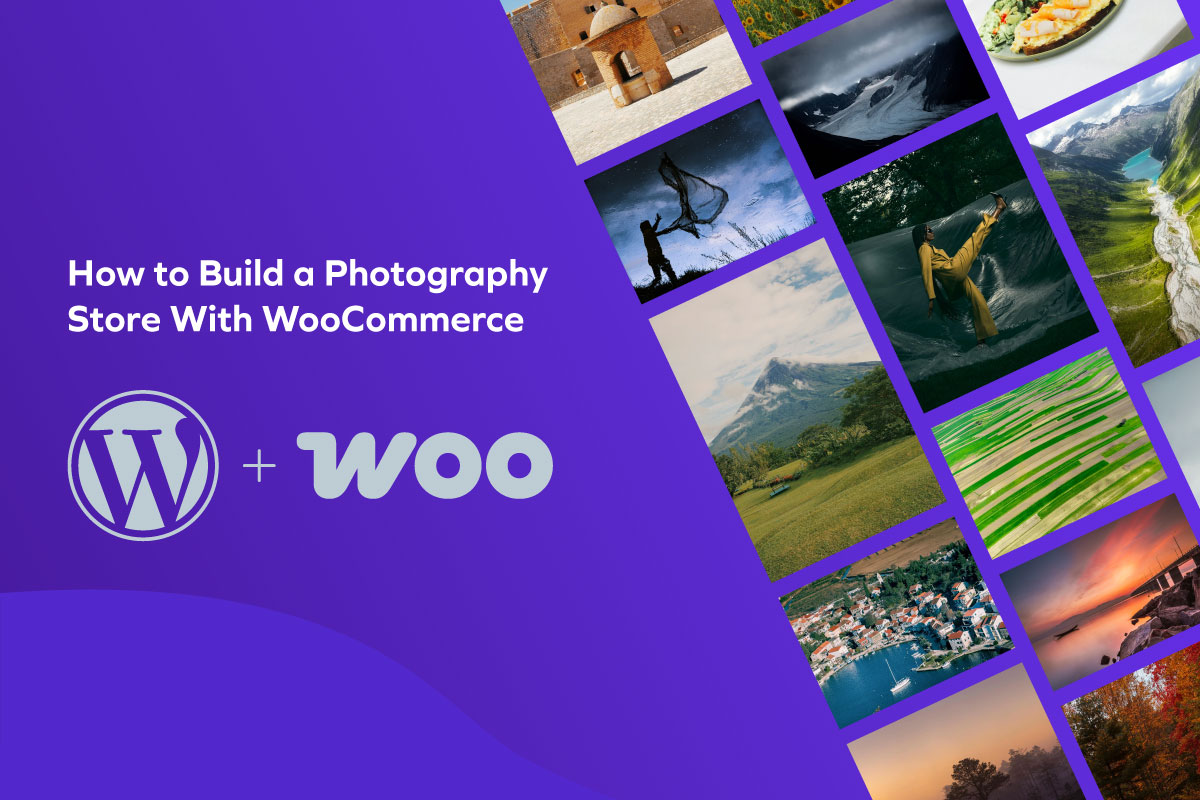You take photos. People say you should sell them. Maybe you’ve uploaded a few to a stock site or handed over prints at a local art fair. Maybe not yet, but it’s crossed your mind.
The truth is, selling your work doesn’t require a gallery, an agent, or a print shop. You can run a photography store entirely online with WordPress and a plugin called WooCommerce.
That’s not theory. It works. And it’s easier than it sounds.
This guide walks through how to build a photography store WooCommerce can power from start to finish. You’ll control pricing, downloads, and how your work is presented. No commissions. No middlemen. Just you and your images.
Why Sell Your Photos Online?
Stock platforms take a big cut, sometimes 70 percent or more. You don’t set the price, don’t keep the customer info, and don’t control how your work is presented.
Selling through your own site fixes that. You decide what’s for sale, how it’s priced, and what people see. With WordPress and WooCommerce, setting it all up is straightforward and affordable.
If you want to sell photos online WooCommerce makes it possible. And if you want to keep more of each sale, running your own online store is the best way forward.
You don’t need to reinvent anything. You just need to build a photography store with WooCommerce. That’s exactly what it was designed for.
Step 1: Choosing Web Hosting and a Domain Name
You need two things: a domain and a host.
Pick a domain that’s short, clean, and relevant. rileysunsets.com works. johnsmith-photo-gallery-site.net doesn’t.
Hosts like Bluehost and SiteGround offer WordPress-ready plans with SSL and one-click installs. They usually cost a few dollars a month. Most also include a free domain for the first year.
Once you sign up and install WordPress, your site is live. It’s not a store yet, but you’re ready to build.
Step 2: Setting Up Your WordPress Website
Choose a theme that’s clean, fast, and WooCommerce-compatible. Astra is a good place to start. So are GeneratePress and Neve.
Install the theme, create a few pages (Home, Shop, Contact), and customize your site’s look. Add your logo, adjust fonts and colors, and set up a navigation menu.
It doesn’t need to be perfect. You’re not trying to win awards. You’re trying to build photo store WordPress users will actually shop on.
Step 3: Installing WooCommerce to Sell Your Photos
From your dashboard, go to Plugins > Add New, search “WooCommerce,” install, and activate. The setup wizard will walk you through basics like currency and product type.
Select “downloads” when asked what you’re selling.
WooCommerce will create new pages: Shop, Cart, Checkout, and Account. It will also enable digital product features. You’ll manage most of your store through the WooCommerce tab in the dashboard.
This is how you enable WooCommerce digital downloads and turn a standard site into a functioning photo storefront.
Step 4: Adding Your Photos as Digital Products
Go to Products > Add New. Add a title, a short description, and a price.
For the product type, choose “Virtual” and “Downloadable.” Upload the file that customers will receive.
Use a smaller or watermarked version of the image as the product preview. Group your work into categories like Landscapes, Urban, or Black and White to make browsing easier.
When you’re ready, publish. That’s your first product.
Step 5: Configuring Your Payment Gateway
To get paid, connect Stripe and/or PayPal. Both are free to set up and are supported natively by WooCommerce.
In the dashboard, go to WooCommerce > Settings > Payments. Enable the gateways you want and follow the setup prompts.
Once connected, test a transaction. Make sure the payment works and that the buyer receives the file.
Selling digital files like this is one of the main use cases for WooCommerce digital downloads. It’s fast, simple, and secure.
Step 6: Setting Up Your Shop Page
WooCommerce generates a Shop page automatically. You can edit it under Pages or customize the layout through your theme’s settings.
Add a short intro if you want. Organize products into categories. Make sure images look sharp and consistent.
If you want more layout control, install Elementor. But you don’t have to. Simple and fast is fine.
This is where your site’s look and feel start to reflect your eye. If you build a photo store, WooCommerce settings will do the heavy lifting, but your presentation still matters.
Step 7: Promoting Your Online Photo Store
Start with what you already use. Instagram, Pinterest, maybe an email list. Post your work, tell the story behind it, and link to your store.
Make sure your product descriptions include phrases people search for, like “downloadable landscape photography” or “high-res sunset photo.” That’s how SEO starts working.
Use a plugin like Yoast SEO to clean up titles and metadata.
You can also offer discounts or run limited-time promotions. WooCommerce makes that easy too.
And if you want to sell photos online WordPress gives you the reach. You just need to bring the consistency.
Final Thoughts
You don’t need fancy tools. You don’t need a marketing plan. You just need a few photos and a way to sell them.
This setup, with WordPress and WooCommerce, gives you a professional, flexible store built for WooCommerce digital downloads. You own it. You control it.
If you’ve been meaning to build a photography store, WooCommerce is the cleanest path forward.
Upload one image. Share it. Repeat.


